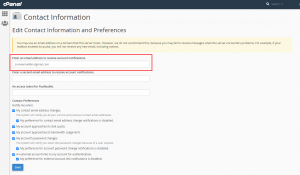HARO can be a great source for getting high quality links, but there is a big problem with it; everyone else knows that too. It gets talked about all the time.
Whenever you see a thread popup in Facebook group or on a forum from someone asking about how to get high quality links, you can bet that HARO will be mentioned.
On top of that, it’s free, so there is zero barrier to entry.
I still love and use HARO, and if you are too, I shared some tips on how to make the most of it a few months back. You can read it at this link: Win More at HARO.
But HARO is not the only game in town. There are other similar services, both free and paid, that most marketers are not aware of. They may not have as many journalists using them, but there are also not as many sources. Provide good pitches, and your odds of obtaining links can go up dramatically.
Here are 3 alternatives that I like to use in combination with HARO:
Terkel
Terkel works basically just like HARO, except without the emails filling up your inbox each day. Everything is handled right within their platform, including your answers.
Where Terkel is much different than HARO is that it assigns sources an “expertise score”. This score is based on the number of pitches they send out and how many of them are successful.
Build up your reputation, and you can find it much easier to pitch successfully. It also means you need to be careful and only be responding to questions that you really feel you can provide some value to.
Terkel also differs from HARO in that it does not allow users to submit unlimited pitches. You can submit up to 3 for free per month.
With a paid account, you can submit unlimited pitches. The price is only $99/month. That might seem expensive, but as someone who routinely pays $200-500 per link through other means, it’s a bargain.
Many people are not going to be willing to pay for this with HARO sitting out there for free. That means you have the opportunity to be a bigger fish in a small pond.
The platform is only about 2 years old, so it is still growing.
Qwoted
Qwoted also works nearly identical to HARO, but it does have an interesting difference. Not just anyone can sign up for Qwoted as a source. Each account is individually vetted and approved.
I honestly have no idea how deep they go in the vetting process, as I have never had an issue registering and being approved.
Qwoted is free to use for up to 2 pitches per month, but also has a paid option giving you unlimited pitches at $150/month. The paid option comes with some additional features that I like.
Queries will show whether it is a new pitch, a deadline is approaching, and who has already received pitches.
This one is a little more pricey, and I do not see interesting queries show up as often, however, that may just be my own bias based on the niches I am working in. I would recommend signing up for free to monitor it yourself and decide if a paid account is useful to you or nAgain, smaller database of journalists and pitches, but also a much smaller pool of people pitching. You may find it easier to stand out and win more links.
I know most people probably do not think of Twitter as an alternative to HARO, but it can be. Many journalists and website owners will post their requests for experts straight to Twitter.
You can find these by searching relevant hashtags: #PRrequests and #journorequests are two popular ones used. I have also seen #expertrequest, #PRrequest, #sourcing, and #influencers.








